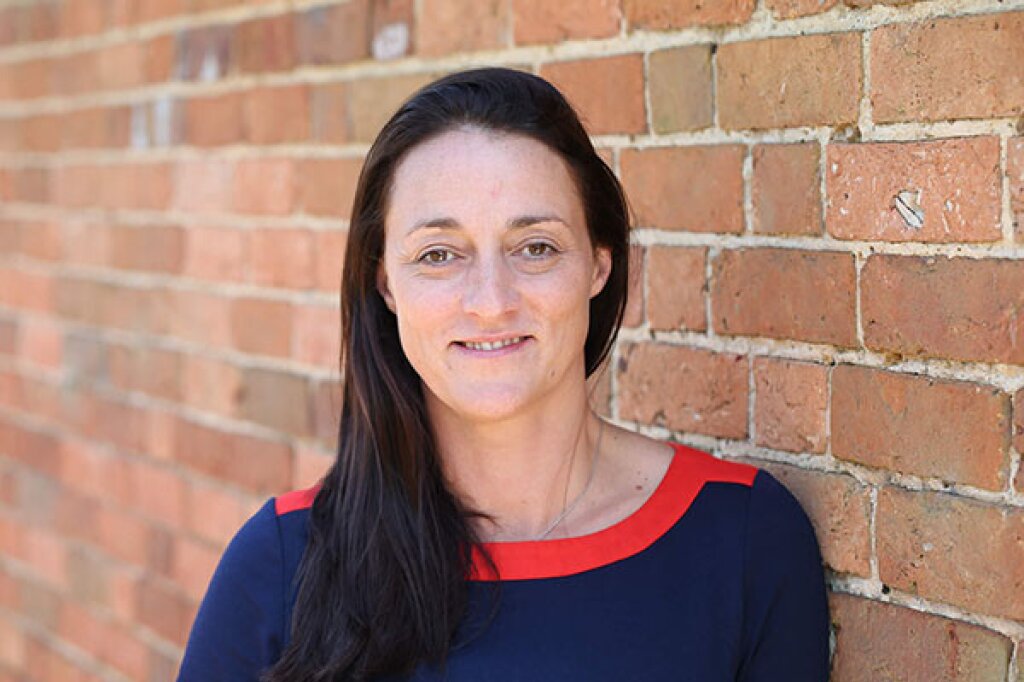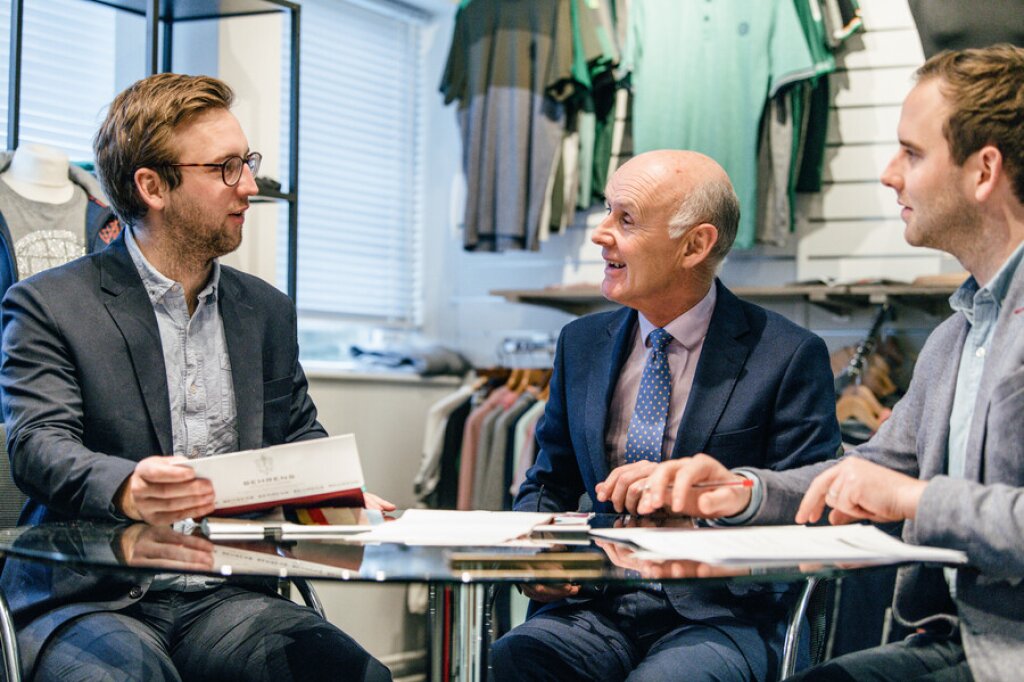Rapid growth and multiple opportunities might sound like a great combination for an ambitious SME chief executive. But Adam Watts, CEO of EFT Group, knows that having the right people do the right things is essential for success.
Wise and impartial counsel from a mentor has helped ensure that his people are all on board.
Adam jokes that he put off joining the family business for as long as he possibly could. EFT Systems, which provides life safety, security and automation services for clients in the public and private sectors, was set up by his uncle in 1974.
But Adam wasted no time at all since he joined the company in 2004, straight out of university, as an apprentice engineer.
“I learned about the business from the bottom up, and it gave me a great understanding of how it works and where the opportunities are,” he said. Adam joined the board in 2009, just after the global economic crisis, with “loads of ideas about how to grow the business.”
This is the second part of a two-part interview series with Adam and Glenn. You can read part one here.
Rapid growth and a thirst for honest feedback
Since then, the company has been on a continuous path of success and growth. In 2009, EFT Systems had sales of just over £1m; today it turns over in excess of £14m. But the business now has another arm, too: Adam set up EFT Construction in 2015, and sales are already at £4.5m.
“And we’ve just secured a ten-year contract with a large housing provider, which should deliver an additional £46m over the next ten years,” Adam said.
Despite this success, Adam explained that being the CEO of a growing business can be a very lonely place.
“It’s a great benefit having people to talk to who are independent of the business, who don’t bring emotion into it. I’m always very open-minded about having access to anyone who can act as a sounding board,” he said.
So when he saw an article in the local newspaper about Be the Business mentoring, he jumped at the opportunity.
“It’s a great benefit having people to talk to who are independent of the business, who don’t bring emotion into it. I’m always very open-minded about having access to anyone who can act as a sounding board.”
Adam Watts – mentee
Sharing nuggets of advice is “the right thing to do”
Be the Business matched Adam with Glenn Bemment, who was then regional director and head of mid-corporates, north, at Lloyds Bank.
This was Glenn’s first mentoring role outside Lloyds Bank: what was the appeal?
“A couple of years ago I listened to a board-level mentor from John Lewis talking about how ‘rich’ the mentoring relationship was for him, for his business and for his mentee. That made an impression on me,” Glenn explained.
“I was also set to move into a new role at Lloyds Bank and was looking to become a non-executive director at some point in the future, so mentoring felt like a good way to gain useful experience for both those roles.”
But it also felt like “the right thing to do,” he added. “If I could share any nuggets with smaller businesses and help them – and the economy – to become more prosperous, that could only be to the good.”
Telling the story – from a distance
The mentoring relationship began in January 2020, and the men managed two face-to-face meetings before the COVID-19 lockdown.
“At the first meeting, I got Adam to tell me his story,” Glenn said. “I sat on my hands and listened, listened, listened, asking just a few probing questions at particular points. One of the things we were seeking to do in that initial meeting was gauge whether we were going to get on – and, if not, we would call time on it.”
The pair “got on like a house on fire” – and a meeting that was supposed to last an hour lasted an hour and 40 minutes. It helped that they had a great deal in common – young families, backgrounds, and similar values.
This contributed to Glenn’s lasting impression of Adam from the first meeting: “The overriding extent to which he bestows his strong personal values and principles on the business – values that come from his heart, not from some management book,” Glenn said.
Impartial advice on difficult “people” issues
The mutual trust established at the outset meant that the two men could quickly get into difficult and challenging conversations – largely about people.
“Adam did a great job in keeping us off the operational mechanics of the business and focusing on strategic issues – like the structure of the business, the shape of the board, his medium-term plans and end goal, and macro decisions around appointments, shareholdings, equity structures and so on,” Glenn said.
“It’s the kind of thing that any MD or CEO would want to talk about, but not with his management group.”
The nature of EFT Systems – not least the life safety element – meant that the pandemic, devastating though it was, created lots of opportunities.
“We got key worker status, and after that it was full steam ahead,” Adam said. But while he didn’t need to lay people off, having the right people around him and keeping them on the right track was a perennial challenge.
“We’ve got over 85 employees and a big supply chain,” he added, “and while people can be your biggest asset, they can also be your biggest problem. Being able to unpack my thoughts with Glenn, who’s not emotionally involved, helped me to process and prioritise those thoughts better.”
Keeping the train on the tracks
Adam knows he’s in a fortunate position. “The business is like a freight train, speeding down the track,” he said. “But keeping it on the tracks and under control is key. I’m very young to be in this position with these responsibilities, and without Glenn’s support, validation and calming influence, lots of things would have kept me awake at night.”
Indeed, for all the support he’s been able to provide, including advising Adam on a new people strategy, Glenn has been awed by the amount of accountability and responsibility Adam has.
“He is spinning so many plates, whereas I have a huge infrastructure around me in my business. Gaining first-hand experience of an SME for the first time has been fascinating and insightful,” Glenn said.
And Glenn has reaped benefits from the mentoring relationship, too. He was recently promoted to a head office role with a national remit – head of ESG, sustainability and regionalisation, SME and mid-corporate banking.
He now has to influence some 1,500 people who don’t report directly to him – which requires more leadership than managerial skills. “My mentoring role with Adam helped me make that transition,” he said.
“Gaining first-hand experience of an SME, for the first time, has been fascinating and insightful.”
Glenn Bemment, Lloyds Bank – mentor
A natural end to a profitable relationship
After 16 months – somewhat longer than a traditional Be the Business mentoring engagement – Glenn and Adam agreed to end their formal relationship. “We were already getting into the territory of diminishing returns, and I didn’t want to risk losing objectivity,” Glenn explained.
But they remain firmly rooted in each other’s networks: “He knows where I am if he needs me, and vice versa,” Glenn said. “I’ve got him on speed dial – and we’ve a game of golf planned before winter sets in.”
Adam believes the trust that he and Glenn established from the outset is key to a successful mentoring relationship. “I could tell immediately that Glenn was completely trustworthy and honest, and that allowed me to be completely honest and transparent about my challenges,” he said.
Glenn believes that mentors need an open, curious mindset, along with a willingness to call time if the relationship falters at any point. “The litmus test for me was that, despite an incredibly busy schedule, I was always pleased to see Adam in my diary and looked forward to talking to him.”
Some potential mentors are put off because they aren’t subject matter experts, but they shouldn’t be, Glenn thinks. “Asking ‘ignorant’ questions can sometimes be the best thing you can do,” he said.
“If I could share any nuggets with smaller businesses and help them – and the economy – to become more prosperous, that could only be to the good.”
Glenn Bemment – mentor
Be the Business mentors on our Productivity Programme are on hand to help businesses just like yours. Find out how you can get access to an experienced mentor, peer support groups and your very own advisory board.
Headline takeaways
Use the first mentoring meeting to gauge compatibility
Establishing mutual trust at the outset meant Adam and Glenn could quickly get into challenging conversations.
Mentors need an open and curious mindset
Not being a subject matter expert shouldn't be a barrier to mentoring. In fact, Glenn believes it can help you to bring an outside view to the table.




